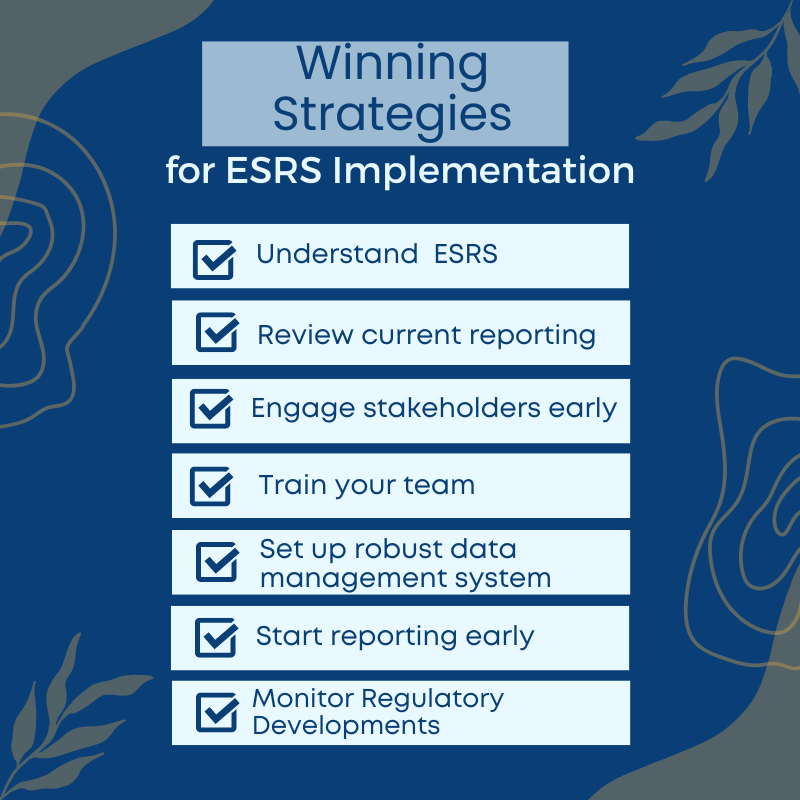
Corporate sustainability has evolved from being a mere buzzword to a necessary business paradigm. The Corporate Sustainability Reporting Directive (CSRD) is an essential part of this change. It’s a game-changing regulation that pushes corporations to go beyond lip service and embrace comprehensive sustainability. This blog post will help you understand the details and implications of the CSRD.
What is the Corporate Sustainability Reporting Directive (CSRD)?
The CSRD is a policy introduced by the European Commission, aiming to enhance the scope and consistency of non-financial corporate reporting. In essence, it requires companies to disclose detailed sustainability information about their environmental, social, and governance (ESG) practices.
The CSRD represents a significant expansion of the previous Non-Financial Reporting Directive (NFRD). It requires all large companies and all companies listed on regulated markets in the EU, except for micro-enterprises, to follow comprehensive European sustainability reporting standards (ESRS).
If you prefer visual content over reading the blog, take a look at our summary video below.
A Deeper Look into the CSRD
The CSRD has several key provisions designed to enhance corporate transparency and to make sustainability reporting as normal as financial reporting. These include:
1. Expanded Scope: The CSRD will apply to over 50,000 companies in the EU, far more than the 11,000 companies that were subject to the NFRD. Additionally, the CSRD includes updated definitions around sustainability reporting. Through the use of the ESRS standards, the disclosure requirements are more comprehensive compared to previous frameworks.
2. Mandatory Assurance: The CSRD requires external assurance of reported sustainability information, adding credibility and reliability to these disclosures.
3. Detailed Reporting Requirements: The directive outlines specific areas for which companies must disclose their impacts and risks, as well as their strategy and targets for managing them. The reporting requirements are included in various European Sustainability Reporting Standards (ESRS).
4. Digitization: Companies must report this information in a digital format, enhancing accessibility and usability of the data for various stakeholders.
Why is the CSRD Important?
The CSRD matters because it significantly raises the bar for corporate transparency and accountability. It demands that businesses go beyond token gestures of sustainability, prompting them to embed these practices into their core operations.
The CSRD also facilitates comparability and coherence. By creating a single set of detailed EU standards – the ESRS, it ensures that companies across the bloc are held to the same rigorous criteria. This will make it easier for investors, consumers, and other stakeholders to compare companies’ ESG performance.
Lastly, the CSRD aims to address information gaps that exist in the current sustainability reporting landscape. By requiring disclosure in a broad range of sustainability areas, it allows stakeholders to get a fuller picture of a company’s impacts and risks.
Looking Forward
The CSRD is a bold step towards a more sustainable corporate world. It represents a shift from voluntary, often fragmented sustainability reporting to a more comprehensive, mandatory, and standardized approach.
Yet, it’s just one piece of the puzzle. Companies will need to go beyond compliance, using the CSRD as a launchpad to drive genuine sustainability improvements. Stakeholders, meanwhile, will need to use the disclosed information wisely, holding companies accountable for their ESG performance.
The CSRD opens up exciting possibilities for corporate sustainability, signaling a new era of increased transparency and accountability. By better understanding its provisions and implications, we can leverage it to create a more sustainable and equitable corporate world.
In the end, the success of the CSRD will be measured by the real-world changes it engenders — the extent to which it prompts companies to lessen their negative impacts, heighten their positive contributions to society, and pave the way towards a sustainable future.
Additional support by The CSRD Compass
Interested in expanding your knowledge of the CSRD? Enroll in our CSRD Course and gain access to a comprehensive curriculum. This course offers a detailed, step-by-step guide to help you achieve full compliance with the CSRD.
If you require assistance with implementing the European Sustainability Reporting Standards, explore our range of CSRD Solutions available. Our dedicated team is here to guide and support you every step of the way on your CSRD compliance journey!


